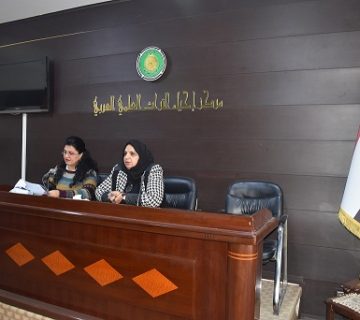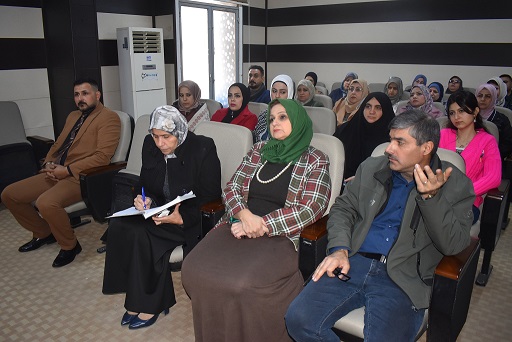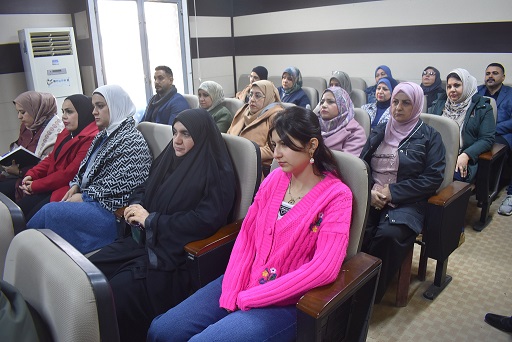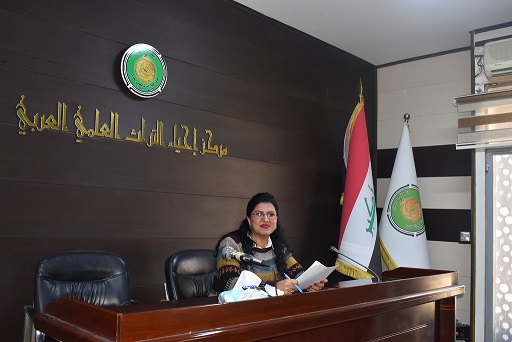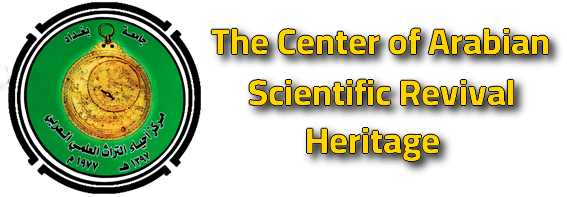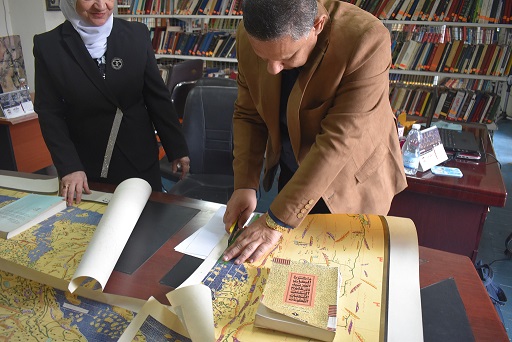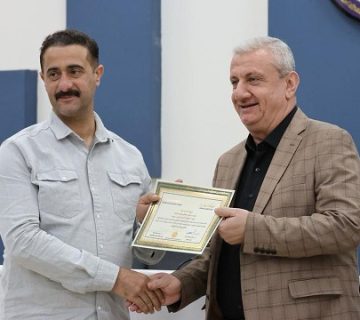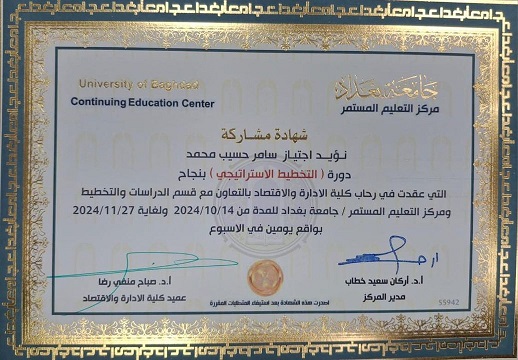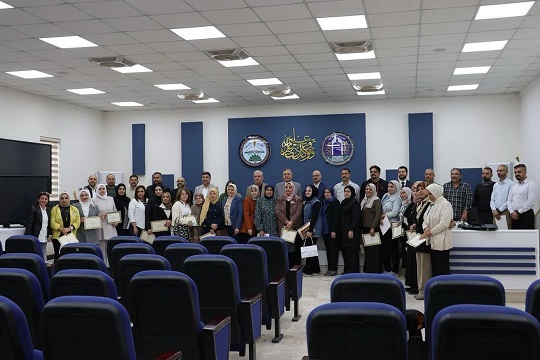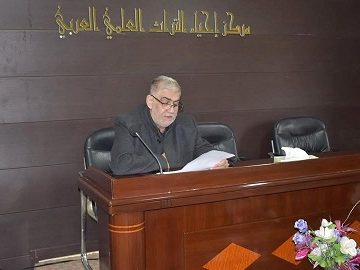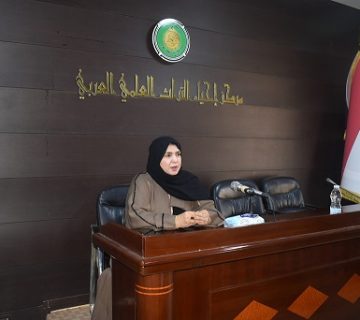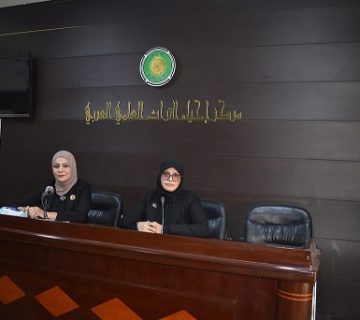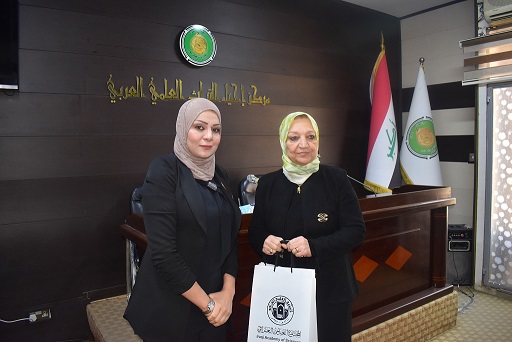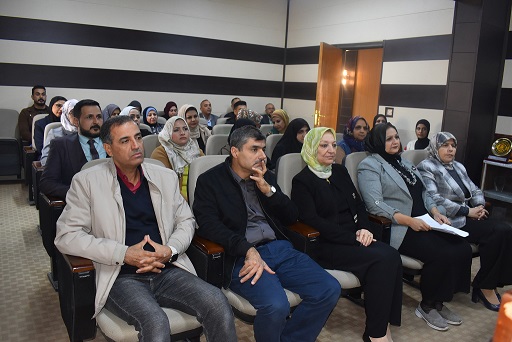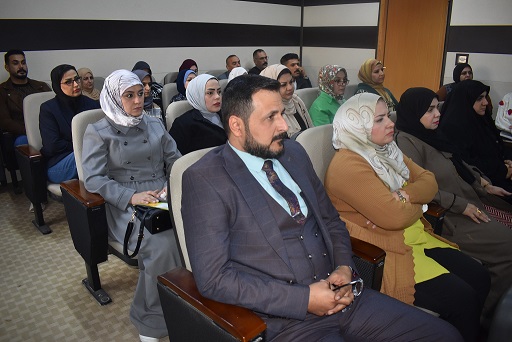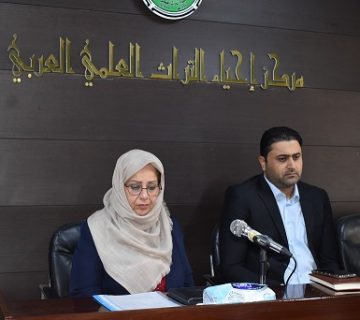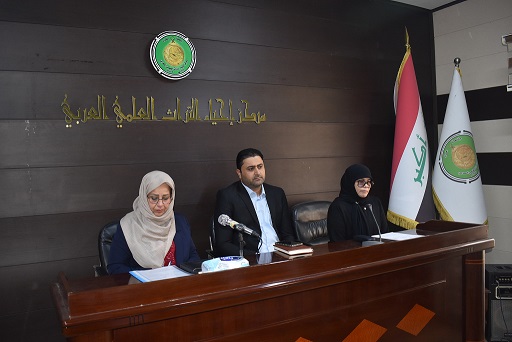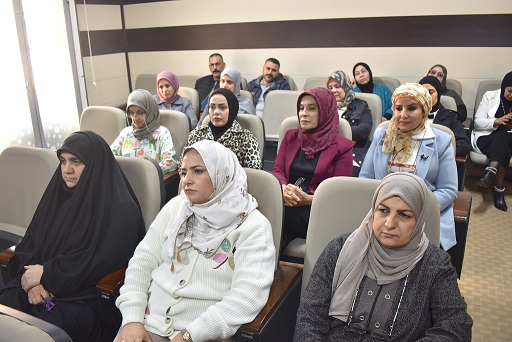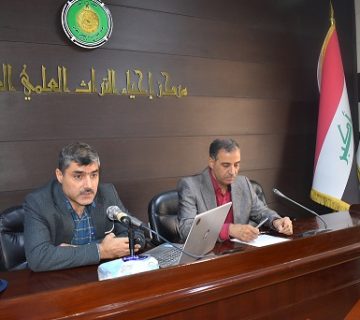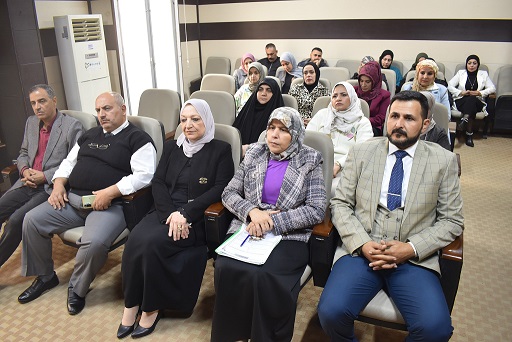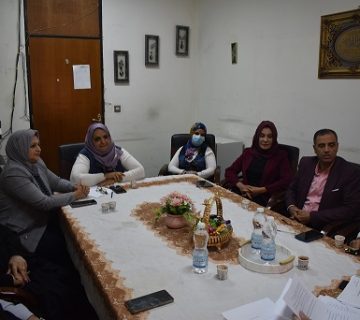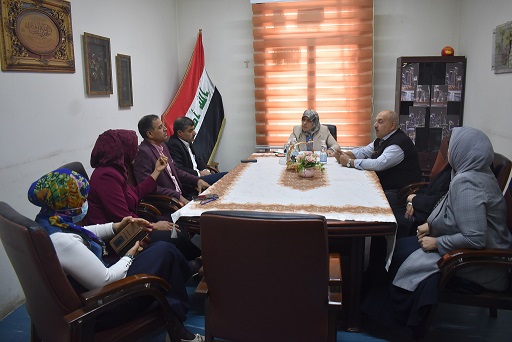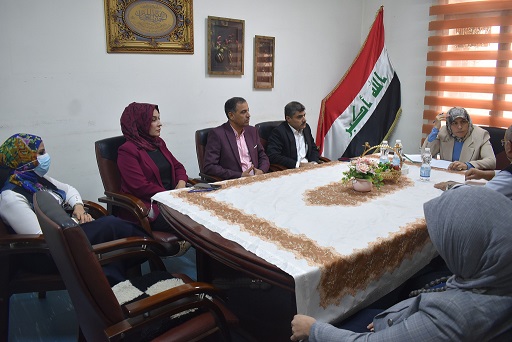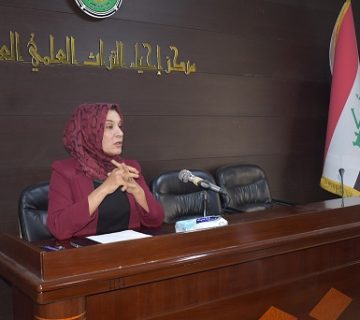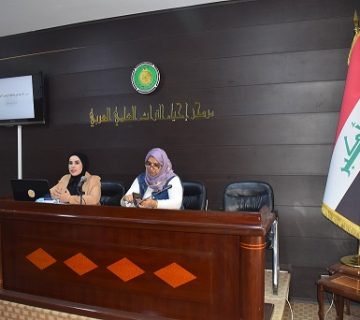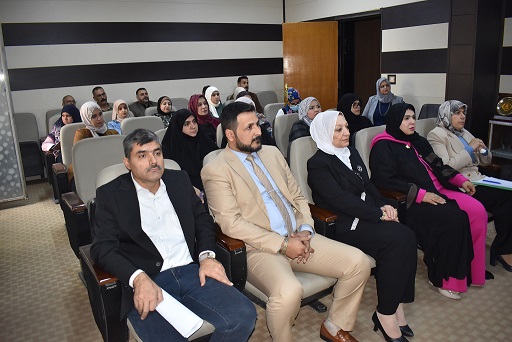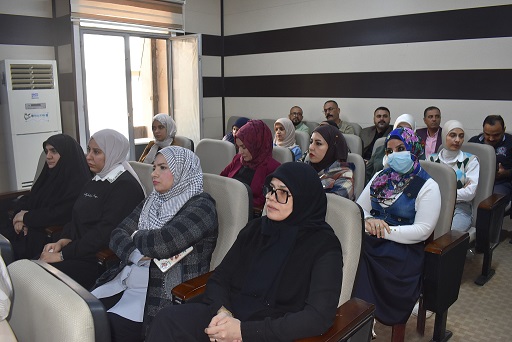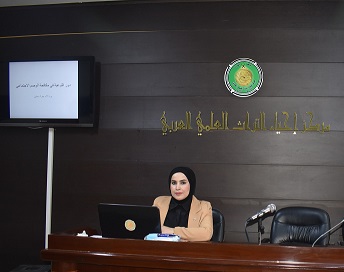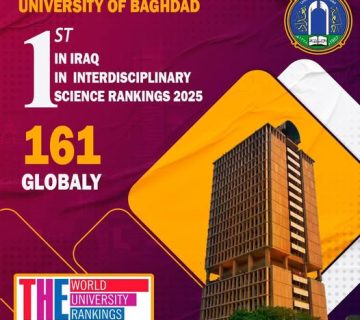The center of heritage revival organizes workshop :
Under the supervision of prof. Dr. Alaa Nafea Jasim (the director of the center), the center organized workshop entitled (Illegal immigration and its impact on Iraqi society)on Wednesday 27th/11/2024 on the gallery of the center in university /media department , the lecture is presented by Dr. Emtithal K. Sarhan (one of the lecturer in the center) Migration is defined as staying in a country illegally or entering legally and not leaving within the legally specified period allowed for staying. It is an issue that requires an evaluation of each of the intended country of migration, the source country, and the transit country, each one separately. Iraq faces a set of challenges and risks of migration to it, which are represented by the reality of foreign labor in Iraq and its negative and positive societal impacts. Labor has turned into a real problem that requires urgent action, especially with the state’s inability to employ its citizens, the high unemployment rates, and the shift in the balance of work in the private sector in favor of foreign labor. Employers now prefer foreign workers through illegal immigration due to their low wages and few requirements. She also added that Iraqi society suffers from illegal immigration from within Iraq to Europe and neighboring countries in search of safety and job opportunities, in addition to the political, security, and economic conditions that Iraq has witnessed over the past three decades, which led to the migration of scientific competencies in search of a better future. In conclusion, the workshop included several interventions on the subject by finding solutions and recommendations to achieve security and economic stability in the country, in addition to improving the reality of education, creating equal job opportunities for young people, and reducing migration
Under the supervision of prof. Dr. Alaa Nafea Jasim (the director of the center), the center organized workshop entitled (Illegal immigration and its impact on Iraqi society)on Wednesday 27th/11/2024 on the gallery of the center in university /media department , the lecture is presented by Dr. Emtithal K. Sarhan (one of the lecturer in the center) Migration is defined as staying in a country illegally or entering legally and not leaving within the legally specified period allowed for staying. It is an issue that requires an evaluation of each of the intended country of migration, the source country, and the transit country, each one separately. Iraq faces a set of challenges and risks of migration to it, which are represented by the reality of foreign labor in Iraq and its negative and positive societal impacts. Labor has turned into a real problem that requires urgent action, especially with the state’s inability to employ its citizens, the high unemployment rates, and the shift in the balance of work in the private sector in favor of foreign labor. Employers now prefer foreign workers through illegal immigration due to their low wages and few requirements. She also added that Iraqi society suffers from illegal immigration from within Iraq to Europe and neighboring countries in search of safety and job opportunities, in addition to the political, security, and economic conditions that Iraq has witnessed over the past three decades, which led to the migration of scientific competencies in search of a better future. In conclusion, the workshop included several interventions on the subject by finding solutions and recommendations to achieve security and economic stability in the country, in addition to improving the reality of education, creating equal job opportunities for young people, and reducing migration
